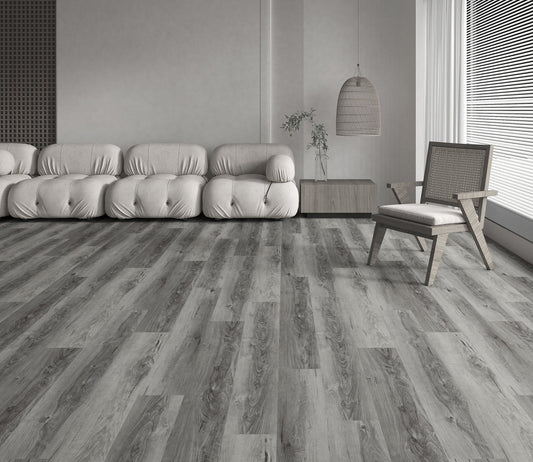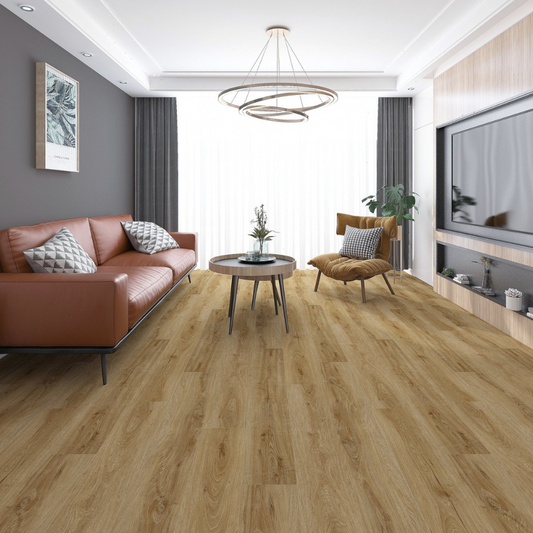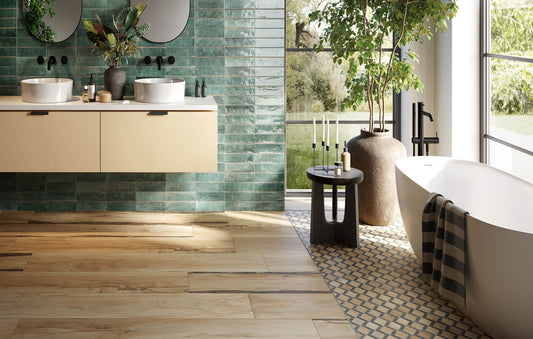SPC (Stone Polymer Composite) flooring is a type of rigid core vinyl flooring that is considered an improvement over traditional vinyl and laminate flooring in certain aspects. Let's compare these three flooring types:
Water Resistance:
SPC flooring: Highly water-resistant and suitable for areas prone to moisture, such as bathrooms and kitchens.
Vinyl Flooring: Generally water-resistant, but water can seep through seams.
Laminate Flooring: Can be resistant to moisture to some extent, but prolonged exposure to water may cause damage.
Durability:
SPC flooring: Known for its durability and ability to resist dents, scratches, and impacts better than traditional vinyl and laminate.
Vinyl Flooring: Durable, but not as resistant to impacts as SPC.
Laminate Flooring: Prone to scratching and may show wear and tear over time.
Installation:
SPC flooring: Often features click-lock installation, making it relatively easy to install for trade and DIY.
Vinyl Flooring: Can come in both glue-down and click-lock options.
Laminate Flooring: Generally uses a click-lock system, making it suitable for DIY installation.
Appearance and Realism:
SPC flooring: Can mimic the look of natural materials, such as wood or stone, with high-quality prints and textures.
Vinyl Flooring: Offers a wide range of designs and patterns but may not be as realistic in mimicking natural materials.
Laminate Flooring: Can closely resemble wood or tile but might have a slightly artificial feel compared to SPC.
Cost:
SPC flooring: Often falls in the mid to high range in terms of cost.
Vinyl Flooring: Generally more affordable than SPC.
Laminate Flooring: Usually less expensive than SPC and vinyl.
Ultimately, the best choice depends on your specific needs, budget, and preferences. SPC flooring tends to excel in areas where water resistance, durability, and a realistic appearance are crucial factors. Vinyl and laminate may be more suitable for those on a tighter budget or with different priorities in mind.




